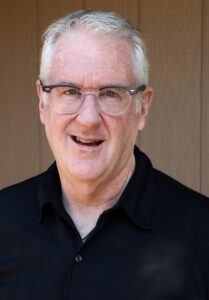
Is it just me, or are the self-outing atheists I see on TV and online a kinder, gentler, more “spiritual” brand of God-doubters? From Mark Zuckerberg to Neil deGrasse Tyson to Jonathan Haidt to the notoriously prickly Bill Maher, the new/new atheists are careful to express their respect for those who believe, and even promote the virtues of religious communities and the positive impact that people of faith have in the world. Okay, maybe I’m just letting a few one-off examples color my view of a broader reality…
But the evidence says it’s not just me.
While the “Nones”—the religiously unaffiliated—now comprise the largest cohort in the U.S. (at 28 percent of the population), atheists are a much smaller subset of that conglomeration of “spiritual but not religious” and “lapsed churchgoers” and “nothing in particular.” Those who embrace their atheist identity still number just 4 percent of the U.S. population. Even so, many of them occupy high-profile media, entertainment, or culturally influencing roles in the culture. And, for about a decade, the most prominent (and combative) atheists were writing books and mounting speaking tours that seemed to resonate with much-wider swaths of the American public.
But not so much anymore…
Justin Brierly, former host of the Unbelievable? podcast and author of the new book The Surprising Rebirth of Belief In God, says people like Richard Dawkins and Sam Harris and Christopher Hitchens and Daniel Dennett (called “The Four Horsemen”) set out to “ridicule religion.” On a recent episode of “The Stetzer ChurchLeaders Podcast,” Brierley says that the Horsemen’s in-your-face approach “was an important part of the movement. It wasn’t afraid of being very brash, confident, derogatory.” This brash and burgeoning momentum seemed capable of infecting a much wider cross-section of Americans with atheistic ideals. Instead, it quickly fizzled into a blip on the cultural landscape. Even Richard Dawkins, the flag-bearer of the movement, has changed his tune—he’s gone public as a “cultural Christian.” Not exactly a ringing endorsement, but still… What’s causing the once-expanding pool of atheists to shrink?
Brierley says: “Firstly, there was a kind of an internal meltdown. Once the New Atheists had agreed that God didn’t exist and religion was bad for you, they really couldn’t agree on much else thereafter because suddenly they began to have all kinds of fallouts over where their movement should head.” For example, some in the higher echelon of atheistic influencers wanted to counterbalance the negative “vibe” around the movement with an increased focus on social justice, but others saw that as “just political correctness and we just needed science and free thinking” (Richard Dawkins).
Digging deeper, after atheism enjoyed its “five minutes of fame” in the mid-2000’s, its inability to energize people with hope, passion, and purpose was quickly exposed. Brierley says:
“Ultimately, I think science and reason, they’re great for some things, but they won’t ultimately give you a reason for living or getting out of bed in the morning. I think people still had those questions bubbling away, and they didn’t go away. They didn’t get answered by, you know, the wonder of science. I think what we’re seeing is the fruition of a meaning crisis in our culture, and I see that in large part down to the fact that we have lost the Christian story, by and large, in the West.”
Another way of saying “we have lost the Christian story” is, simply, that we’ve forgotten who Jesus really is, and what it looks like to follow Him. This is why, for a decade, I’ve led a “home church” for young people with this missional motto: “Pursuing the heart of Jesus, not His recipes.” It means we are exploring the person of Jesus, in all His magnetic wonder, and are fairly unconcerned about “life application.” From the storehouse of almost 300 “pursuit experiences” I’ve created for this group, I’ve curated 40 of them into our Following Jesuscurriculum. When adults and young people are asked what they want more of in church, the consistent answer for more than a decade is “more of Jesus.” They’re hungry, and maybe Following Jesus can help you serve the hearty meal they crave. Check it out, then fill that yawning gap of meaning with “the bread of life”…
Help Is On the Way!
Fall is fast approaching, and we innovative, practical resources that will help you infuse your ministry environment with “rich soil” for transformation. First up, Following Jesus is a curriculum resource you can use with both adults and teenagers in your church this fall—help them explore what an ABIDING/REMAINING relationship with Jesus is like. It’s an experiential, highly interactive, co-discovery way to invite people into deeper intimacy with Jesus. And The Life of Jesus TalkCards is a simple, devotional way to invite small groups into the heart of Jesus.
Meanwhile, my new book Editing Jesus is now out. If you’d like an extended teaser of the book, just to check it out, the publisher has put together a pdf of the first three chapters that is exclusively available to the Vibrant Faith community. So, here you go… Just click on this link and you can download a pdf of this long excerpt from the book.

Rick Lawrence is Executive Director of Vibrant Faith—he created the new curriculum Following Jesus. He’s editor of the Jesus-Centered Bible and author of 40 books, including his new release Editing Jesus: Confronting the Distorted Faith of the American Church, The Suicide Solution, The Jesus-Centered Life and Jesus-Centered Daily. He hosts the podcast Paying Ridiculous Attention to Jesus.
[activecampaign form=5]
 A Deeper Way to Lead Others Into Faith Maturity… Guide your people into depth relationally and experientially… A new curriculum by Rick Lawrence for both youth & adult ministries. Learn More Here
A Deeper Way to Lead Others Into Faith Maturity… Guide your people into depth relationally and experientially… A new curriculum by Rick Lawrence for both youth & adult ministries. Learn More Here
